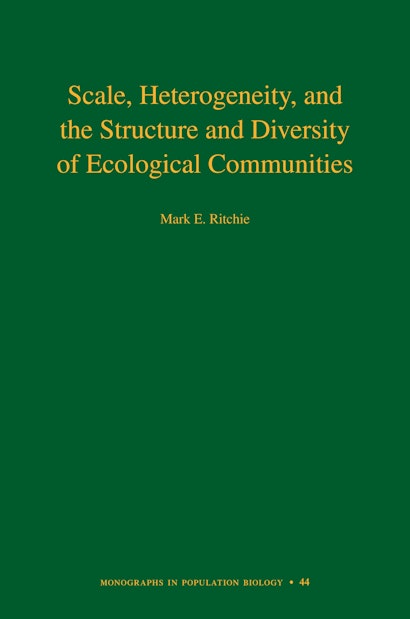Scale, Heterogeneity, and the Structure and Diversity of Ecological Communities


Paperback
ebook
- Sale Price:
- $40.60/£33.60
- Price:
-
$58.00/£48.00 - ISBN:
- Published:
- Sep 28, 2009
- Copyright:
- 2010
- 62 line illus. 2 tables.
- Main_subject:
- Biology
30% off with code PUP30
Understanding and predicting species diversity in ecological communities is one of the great challenges in community ecology. Popular recent theory contends that the traits of species are “neutral” or unimportant to coexistence, yet abundant experimental evidence suggests that multiple species are able to coexist on the same limiting resource precisely because they differ in key traits, such as body size, diet, and resource demand. This book presents a new theory of coexistence that incorporates two important aspects of biodiversity in nature—scale and spatial variation in the supply of limiting resources.
Introducing an innovative model that uses fractal geometry to describe the complex physical structure of nature, Mark Ritchie shows how species traits, particularly body size, lead to spatial patterns of resource use that allow species to coexist. He explains how this criterion for coexistence can be converted into a “rule” for how many species can be “packed” into an environment given the supply of resources and their spatial variability. He then demonstrates how this rule can be used to predict a range of patterns in ecological communities, such as body-size distributions, species-abundance distributions, and species-area relations. Ritchie illustrates how the predictions closely match data from many real communities, including those of mammalian herbivores, grasshoppers, dung beetles, and birds.
This book offers a compelling alternative to “neutral” theory in community ecology, one that helps us better understand patterns of biodiversity across the Earth.